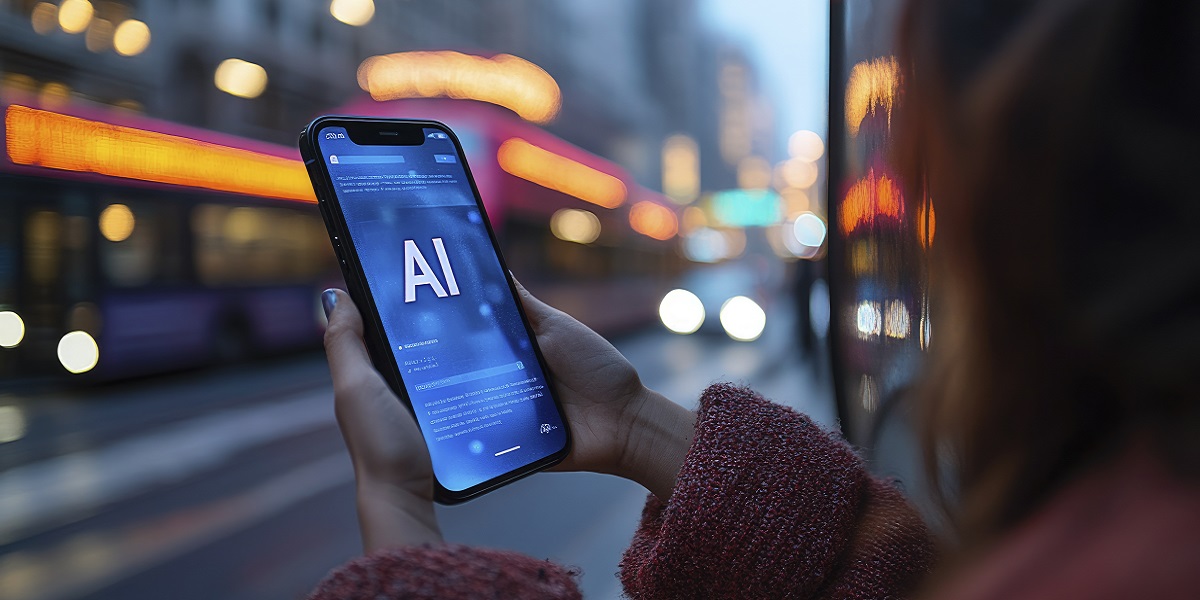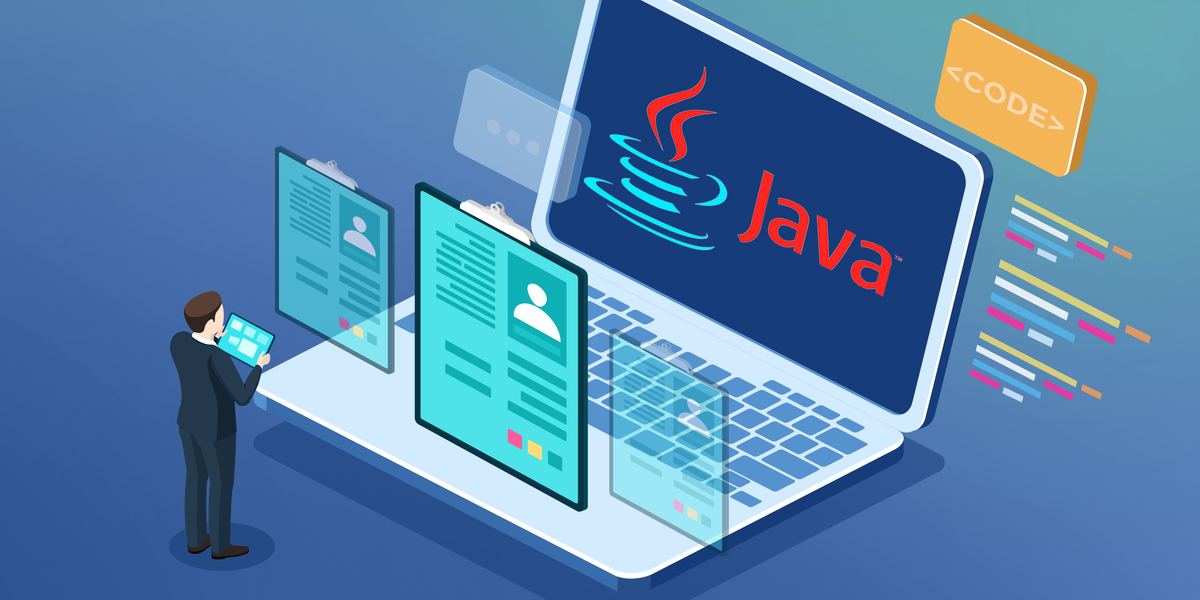What are the Prominent Benefits and Use Cases of AI in Mobile Apps?

At present, there are over 4.88 billion smartphone users globally. By 2029, it is forecasted to reach the mark of 6.38 billion (Priori Data). With the rising population of smartphone users, investing in mobile app development has emerged as a top priority for enterprises to:
- Maximize ROIs and profits
- Enhance brand visibility and reputation
- Increase global customer and market reach
- Provide quality services and assistance on time
- Connect with the desired target audience
- Reward loyal customers and followers.
However, to create user-centric mobile applications, it is also essential to harness the power of new-age technologies like Artificial Intelligence (AI). There are plenty of reasons why the importance of incorporating AI in mobile app development is increasing over time. But first, let us have a glance at:
Mobile App- Some Top Market Insights
- The Google Play Store features over 2.65 million apps. While the iOS App Store comprises over 2.11 million apps. (Global App Testing)
- During the second quarter of 2024, consumer spending on mobile applications raised over $36.2 billion. (Statista)
- 71 percent of app uninstallation happened due to bugs and poor performance. (AppSamurai)
- There has been a surge in the downloads of Fintech and banking applications by over 54 percent (Expert App Devs)
On average, people in the United States spend around 5 hours and 24 minutes every day. (eSparkBiz) - Total users of digital wallet apps are forecasted to reach the mark of 5.2 billion in 2026 (Juniper Research)
Now!
We will find out:
What are the Major Advantages of Using AI in Mobile Applications?
When integrating AI in mobile app development, businesses should hire mobile app developers with decent expertise and experience. It will not only save them development budget and timeline but will also enable them to capitalize on benefits like:
Personalized Experience
People will always attach to your mobile apps when they constantly receive personalized content and features. With Artificial Intelligence, your business can track users’ habits and preferences to provide them with tailored services to captivate and retain them for a long time.
Predicts Consumer Behavior
Leveraging the power of AI-driven predictive analytics, you can foresee the changing preferences and choices of your customers in the future. This will prepare your business at the beginning to fulfill the evolving consumer demands with efficient resource utilization to stay ahead of the competition.
Fraud Prevention
AI algorithms not only excel in assessing users’ daily habits but also prevent malware attacks and other unauthorized activities with end-to-end encryption, facial recognition, biometric verifications, and other security measures.
Under the guidance of a recognized mobile app development company, you can enhance the capability of your mobile apps with the efficient utilization of AI technology to ensure safety and privacy for your customers.
Streamlined Workflow
With the help of AI-drive mobile apps, your organization can automate tasks like inventory management, invoice processing, logistics tracking, etc. without compromising data security. This helps you to manage your other core business activities with improved efficiency, scalability, and quality.
Real-time Assistance
The integration of AI chatbots and virtual assistants is allowing businesses to guide their customers 24/7 with a prompt response to their diverse queries and feedback. It is allowing brands to vehemently meet the rising demands and expectations of their customers with evolving technologies and business environments.
Improved Search Capabilities
Besides conventional finger swipes, the deployment of AI in mobile applications is enabling people to utilize features like voice commands, auto-suggestions, etc., to look for their desired products, services, and other information much more easily to obtain a satisfactory experience throughout the year.
Moreover, there are other benefits of integrating AI in mobile applications. As per the prediction of the International Data Corporation (IDC), global spending on AI-enabled apps will reach a growth value of $632 billion in 2028. When commenting on the prospects of AI-powered apps in businesses, Ritu Jyoti (the Group Vice President of IDC) said, “AI-powered transformations have delivered tangible business outcomes and value for organizations worldwide and they are building their AI strategies around employee experience, customer engagement, business process, and industry innovations,"
In this regard, we will also take a closer look at:
The Global Market of Artificial Intelligence- Some Useful Insights
- The global figure of AI tool users is 414.7 million. By 2030, it is predicted to reach the mark of 729.11 million (Statista)
- The worldwide market share of NLP (Natural Language Processing) in the AI segment is 39.7 percent (market.us)
- The global revenue from the AI industry is forecasted to be $1.85 trillion in 2030 (Exploding Topics)
- 58 percent of organizations in the UAE have implemented AI. Similarly in Singapore, 53 percent of companies are using AI. (IBM)
- Customer service represents 56 percent of the utilization of AI in business (National University)
It is time to cover:
What are the Transformative Impacts of AI Across Industries?
The introduction of AI has equipped businesses with cutting-edge potential to discover hidden opportunities and capitalize on emerging trends to boost revenue and dividends. This post is going to cover the major impacts of Artificial Intelligence on industries like:
1. Healthcare
Displaying an impressive market value of $14.92 billion, the prospects of Artificial Intelligence technology in the Healthcare industry are on the rise. By 2030, it is forecasted to reach the growth figure of $164.16 billion in 2030 (MarketsandMarkets).
Use Cases
-
Personalized Treatment
Harnessing the power of AI algorithms, health experts assess medical records, lifestyle habits, and other factors to decide the best treatment options for every patient on time to ensure a timely recovery.
-
Real-time Monitoring
AI has also proved very useful in remote health detection in real time. It delivers alert notifications once sensing deteriorating conditions due to negligence in medication or other factors.
-
Medical Discovery
AI has also revolutionized the discovery process with a predictive analytics model. This empowers researchers to conveniently identify suitable medicines with potential impacts.
2. Banking and Finance
Artificial Intelligence has also brought sweeping changes in finance and banking operations across the world. This has resulted in better management of personal finance, supporting cross-border payments, encouraging crypto trading, and much more.
Use Cases
-
Risk Assessment
AI uses a huge amount of data to help enterprises assess market conditions to predict upcoming financial risks and make informed decisions wisely for investment and trading.
-
Fraud Detection
AI also helps financial institutions track suspicious transactions, irregularity in user behaviors, and other unauthorized practices in real-time to alert users thereby safeguarding financial assets.
-
Regulations Compliant
AI assists businesses to efficiently comply with AML, PCI-DSS, and other compliances in the finance and banking sectors with accurate evaluation.
3. Ecommerce and Retail
Artificial Intelligence has immensely benefitted establishments operating in the retail and e-commerce industry with improved conversions and surplus dividends.
Use Cases
-
Customized Shopping
The algorithms of AI thoroughly analyze users’ spending habits with product and brand choices to offer them tailored recommendations comprising suitable prices.
-
Active Customer Support
Integration of AI chatbots allows customers to receive guidance to complete the checkout process and provides useful insights for a seamless shopping experience.
-
Inventory Management
AI also assists retail and ecommerce owners in managing their inventory wisely to avoid overstocking and product shortages depending on real-time consumer demand.
Depicting an impressive global revenue of $62.64 billion, AI will continue to provide more opportunities for organizations to shine in the ecommerce and retail segment. However, to obtain a competitive edge in this demanding industry, you have to deploy AI-driven app development services.
4. Education and Learning
Artificial Intelligence is also optimizing the conventional learning standards with machine learning and predictive analytics.
Use Cases
-
Tailored Curriculum
Initially, students were unable to decide when to choose the ideal educational course. Now, AI is helping students select the right professional and academic courses based on subject expertise, exam scores, and other criteria.
-
Language Translation
Previously, it was difficult for students and educators with distinct linguistic backgrounds to communicate with each other. With AI-powered language-translation apps, the communication barriers between instructors and learners have been completely removed.
-
Assessment Feedback
The introduction of AI is enabling teachers not only to complete assessment tests of every student on time but also allowing them to provide real-time feedback for scopes of improvement.
5. Media and Entertainment
Even in the media and entertainment industry, Artificial Intelligence is helping enterprises to captivate audiences with out-of-box ideas to boost engagement and retention. Displaying an impressive market size of $24.56 billion, AI is reshaping the media and entertainment industry with the cutting-edge potential to deliver quality content.
Use Cases
-
Responsive NPCs (Non-Player Characters)
Initially, non-player characters in games were considered as a static objective. But with the arrival of AI in gaming, NPCs have become smart and intelligent bots that closely analyze the playing styles of every gamer to provide a competitive gameplay experience.
-
Personalized Recommendations
AI also enables streaming apps like Netflix, Amazon Prime, and others to offer tailored content to every individual based on language, age, genre preferences, viewing history, and other factors.
-
User Sentiment Analysis
It is also important for businesses to know which type of content is receiving immense response from users or which advertisement is engaging customers. Leveraging the power of Artificial Intelligence, you have the scope to gain deeper insights into user responses, identify trends, and optimize your strategies for maximum impact.
What are the Steps to Implement AI in Mobile Applications?
There are numerous benefits of integrating AI in mobile applications. But to obtain the desired outcome, you have to follow steps like:
1. Requirement Gathering
You have to shortlist your core business objectives or major challenges that you want to solve with the deployment of AI in mobile applications. Be it customer support, fraud prevention, task automation, or purposes, shortlisting your requirements will enable your dedicated app development team to proceed with a clear roadmap and vision to provide the desired outcome.
2. Selecting the Right AI Technology
Next, you also need to decide on the ideal AI technology which comprises-
- Machine Learning
- Computer Vision
- Natural Language Processing
- Deep Learning
Depending on the app type and its purposes, you have to concentrate on integrating suitable AI technology into your mobile app. However, to ensure a satisfactory outcome, you must hire mobile app developers with huge experience.
3. Collecting and Preparing Data
To ensure the smooth working of your AI-powered mobile applications, you not only have to focus on data collection but also need to set a process to refine it thoroughly. This shall enable your target users to obtain unbiased results quite consistently.
4. Consult Experts
Adding AI technology to a mobile app is a complex process. From choosing the right AI model to ensuring end-user security and privacy, you have to proceed cautiously. Hence, you should consult with a recognized mobile app development company.
5. Train and Improve
Once you have integrated AI into your app, it’s essential to continuously train and improve it. This helps your AI respond more effectively to users' needs in real-time. It is important to make sure your AI model learns from user interactions and feedback, so it can adapt and deliver a smoother and more personalized experience.
6. Final Deployment
Once everything is set, it is time to deploy your AI model into the mobile app. Working with an experienced mobile app development company will ensure a smooth and efficient launch. It will also help in optimizing the performance of your AI model within the app.
7. Evaluate and Monitor
As technology is evolving, you need to make sure that your AI model is also upgraded with the changing needs of users. This will allow your app to retain its growing popularity and relevancy throughout the year.
8. Final Statement
From remote health monitoring to cross-border payments, Artificial Intelligence is transforming mobile applications into an extremely useful tool in today’s busy world. Presently, many businesses are scaling up their investments in this new-age technology when developing mobile apps like Alexa, Siri, Google Maps, Uber, Duolingo, and so on. By 2028, revenue generation from the AI app segment is estimated to be $18.8 billion (Business of Apps). This is indeed a brilliant scope for next-gen enterprises to join and invest in this sector to reap massive dividends and returns in the future.
Hyperlink InfoSystem - Most Trusted End-to-End development Solution Provider.
Write For Us





